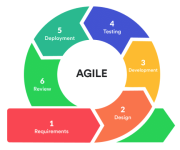Top Tips for Businesses on Ensuring Compliance with the EU Data Act
The EU Data Act has become a critical focal point for organisations managing digital assets, data-sharing arrangements, and smart technology services across the EU.
Designed to foster a single market for data, the Act introduces significant changes in how businesses access, use, and share data—particularly for companies operating in digital and tech-driven sectors.
But for many business owners and compliance managers, the legislation can appear complex and overwhelming. In this blog post, our experts break down the EU Data Act’s core principles and provide practical tips for staying compliant—without sacrificing innovation or efficiency.
What Is the EU Data Act?
Introduced as part of the EU’s broader Digital Strategy, the EU Data Act aims to make more data available for use in the EU economy, across all sectors. It complements the General Data Protection Regulation (GDPR) but focuses specifically on non-personal and industrial data.
The Act establishes rules around who can access data generated by connected devices (IoT), the portability of such data, and conditions under which public bodies can access privately held data in emergencies. It also promotes fair contractual terms in data-sharing agreements.
The European Commission describes it as a key step in “unlocking the value of industrial data” to promote economic growth and digital fairness. More details can be found on the official European Commission Data Act page.
Tip 1: Conduct a Comprehensive Data Inventory
The first step towards compliance is understanding what data your business collects, who controls it, and where it flows. This means auditing all connected devices, systems, and platforms that generate or store data.
Your inventory should categorise data by type (e.g., personal, non-personal, machine-generated), origin, usage rights, and current access permissions. Remember, the EU Data Act applies not just to consumers, but also to business users—so be thorough.
This exercise also helps you identify whether your current arrangements align with the Act’s requirement for data portability and access transparency.
Tip 2: Review Your Contracts with Third Parties
One of the central aims of the EU Data Act is to prevent data monopolies and ensure fair access. As such, it mandates fairness in business-to-business (B2B) and business-to-government (B2G) data-sharing contracts.
Review your vendor, customer, and partnership agreements to ensure:
- Clear rights and responsibilities regarding data access and usage.
- Reasonable and non-discriminatory terms.
- Dispute resolution mechanisms.
If you’re relying on boilerplate clauses or legacy agreements, now is the time to update them. Failure to comply could lead to enforcement action or the nullification of unfair terms.
The European Data Protection Board (EDPB) has useful documentation on how new data laws align with existing frameworks like GDPR and ePrivacy regulations.
Tip 3: Plan for Data Portability and Interoperability
Under the EU Data Act, users (both individuals and businesses) must be able to access and port data generated by their connected devices to third-party services. This provision extends far beyond GDPR’s existing data portability requirements.
To comply, businesses must ensure their systems and software are built—or adapted—to enable secure and seamless data exports. This includes offering clear APIs (Application Programming Interfaces), data download formats, and timely responses to data portability requests.
Investing in systems that support interoperability may involve upfront costs, but it also opens the door to collaboration, innovation, and improved customer trust.
Tip 4: Educate Your Team and Build a Culture of Compliance
No data governance strategy succeeds without people. Your employees—from IT teams to customer service staff—must understand how the EU Data Act affects their day-to-day responsibilities.
Host internal training sessions to explain:
- What data the company collects.
- Who owns the data.
- What rights data users now have.
- How requests for data access or portability should be handled.
Additionally, update your privacy policies and documentation to reflect the new rights and obligations under the Act. This not only demonstrates your commitment to compliance but also helps build trust with clients, regulators, and partners.
Tip 5: Prepare for Emergency Data Requests
The EU Data Act grants public sector bodies access to privately held data in exceptional circumstances such as public emergencies, including pandemics or natural disasters.
To prepare, you should:
- Designate a point of contact for government data requests.
- Create an internal process for verifying the legitimacy and urgency of these requests.
- Define a method for delivering data quickly and securely.
Although these situations may be rare, having a documented protocol ensures your business can respond appropriately—and legally—when the time comes.
Tip 6: Monitor Developments and Be Ready to Adapt
While the Data Act has been approved, guidance on enforcement and implementation continues to evolve. It’s crucial to stay informed about regulatory updates, case law, and industry best practices.
Join compliance or data protection associations. Subscribe to updates from the European Commission, EDPB, and national data protection authorities. Regularly review your compliance measures to ensure they remain aligned with current interpretations of the law.
Digital regulation is moving quickly—and staying static is no longer an option.
Beyond Compliance: The Competitive Advantage
Complying with the EU Data Act shouldn’t be viewed as a chore. In fact, forward-thinking companies can use compliance as a competitive advantage.
Transparent data practices build consumer trust. Interoperable systems improve collaboration. Fair contracts reduce disputes and strengthen partnerships. By adopting a proactive stance, you not only reduce legal risk but also open the door to new business opportunities.
Digital trust is currency. And in a data-driven world, how you manage, protect, and share that data speaks volumes about your values.
Compliance and convenience for businesses
The EU Data Act represents a significant step in redefining how data is accessed, shared, and used across Europe. For businesses, it brings both obligations and opportunities.
From rethinking contracts and ensuring system readiness, to fostering a culture of transparency, now is the time to act. With clear strategy, sound legal advice, and ongoing vigilance, your organisation can stay compliant—and thrive in the evolving digital landscape.
This article is for informational purposes only and does not constitute legal advice. Always consult a qualified data protection or compliance professional for advice tailored to your business.



























